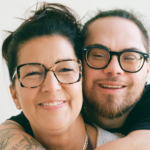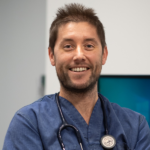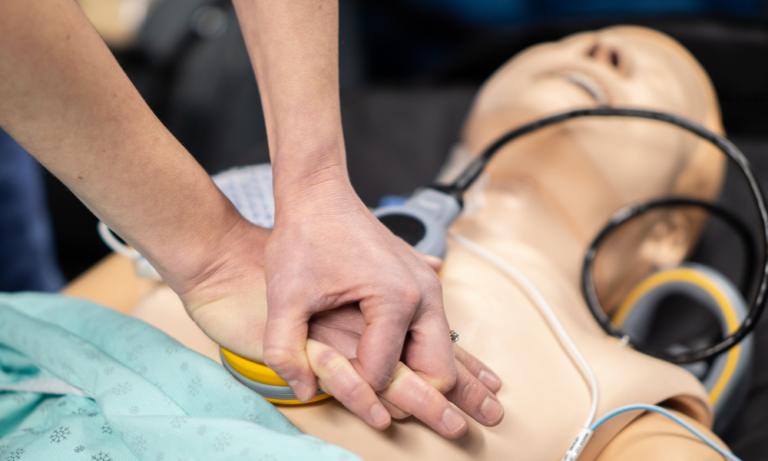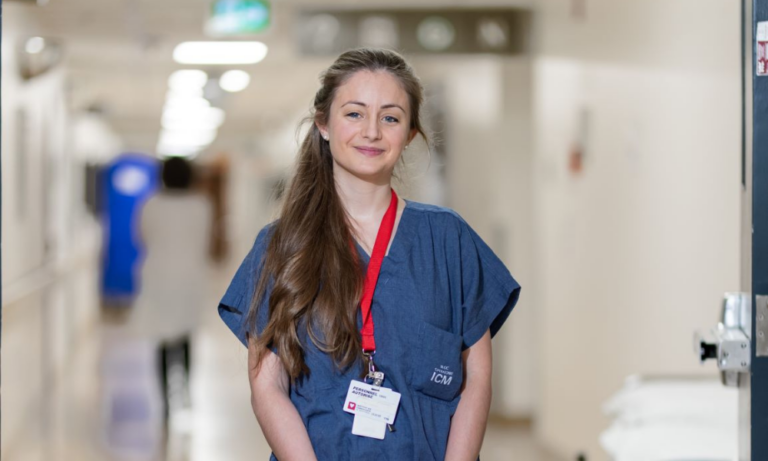Simulation-based teaching: major benefits for patients
Foundation, in collaboration with Dr. Serge Doucet, cardiologist and Director of Education at the Institute
Home > Blog > Simulation-based teaching: major benefits for patients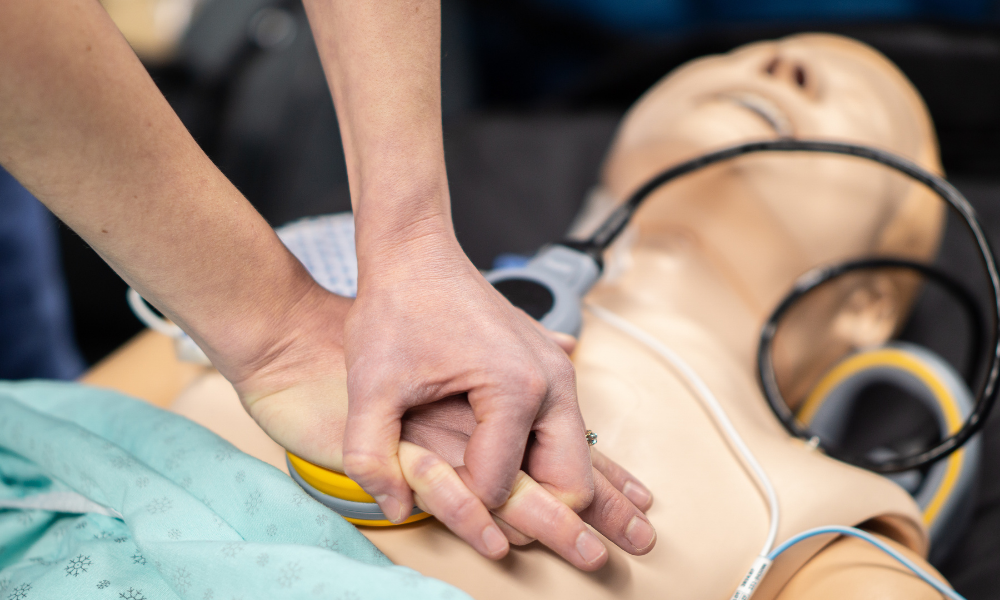
The Montreal Heart Institute is one of the world’s largest teaching centres in cardiovascular health. Always aiming for the highest standards in education, the institute believes the acquisition and sharing of knowledge are cornerstones in the fight against cardiovascular diseases.
Every year, in addition to students and residents from the province of Quebec, more than 25 international fellows choose the Institute to complete their medical training. They’re supported by experienced experts who use cutting-edge learning techniques.
Simulating real cases to promote learning
Over the past few years, simulation-based education has become increasingly popular in the field of medicine. In fact, several articles have demonstrated its value and even suggested that it can reduce the number of errors made during real medical interventions.
In this vein, the Institute’s Centre de formation et d’excellence en santé cardiovasculaire (CESC) will soon offer new courses as part of its Simulation-based teaching program. Numerous healthcare professionals are already interested in the cardiac catheterization program.
To make this program possible, the Institute, with the support of its donors and the Foundation, will purchase a new state-of-the-art tool that will improve the training provided to its residents, nurses, fellows, and other health care professionals: the ANGIO Mentor cardiac catheterization simulator. This simulator is currently the best of its kind in Canada. Equipped with various learning modules, the device will be integrated into training sessions provided to residents and fellows.
The simulator provides trainees with a realistic clinical environment and a full body mannequin. Its numerous teaching modules allow them to practice several techniques such as balloon angioplasty and transcatheter aortic valve implantation. The trainers will therefore be able to correct trainees in real-time and complete their preparation for surgical interventions.
Preparing for the 6,000 annual interventions
Cardiac catheterization is an exploratory method in interventional cardiology used to carry out various tests, such as:
- Measuring the pressure in heart chambers
- Assessing the heart’s capacity
- Identifying cardiac anomalies
- Determining if a surgical intervention is required
Moreover, this technique can also be used to:
- Treat heart defects
- Dilate a valve
- Unblock an artery
The institute carries out nearly 6,000 cardiac catheterization procedures every year, including nearly 3,000 surgical interventions and 300 complex noncoronary procedures. Trainees must receive in-depth training which translates into benefits for the patient. Every gesture counts because the patient’s life depends on it.
In this field of interventional cardiology, procedures that use tubes threaded through blood vessels are minimally invasive for patients but require extreme accuracy and precision. The new program will allow residents and fellows to be better prepared for these types of procedures thanks to simulations which can replicate clinical situations and rare complications.
Benefits for the patients and the health care teams
The creation of the Simulation-based cardiac catheterization teaching program will have a direct positive impact on health care professionals and trainees which will ultimately improve the care they provide to patients.
In addition to offering an enhanced university training program in interventional cardiology, this new simulator will also:
- Increase the allure of training programs
- Attract high-quality candidates
- Reduce the stress of those who oversee these kinds of procedures
- Reduce the risks of complications during the procedure
- Reassure the patient
- Make these procedures safer
Every year, thanks to generous contributions from donors, the Institute is able to carry out innovative projects. Discover what else has been made possible thanks to your generous donations.
Do you want to help patients and support teaching?
Donate today


